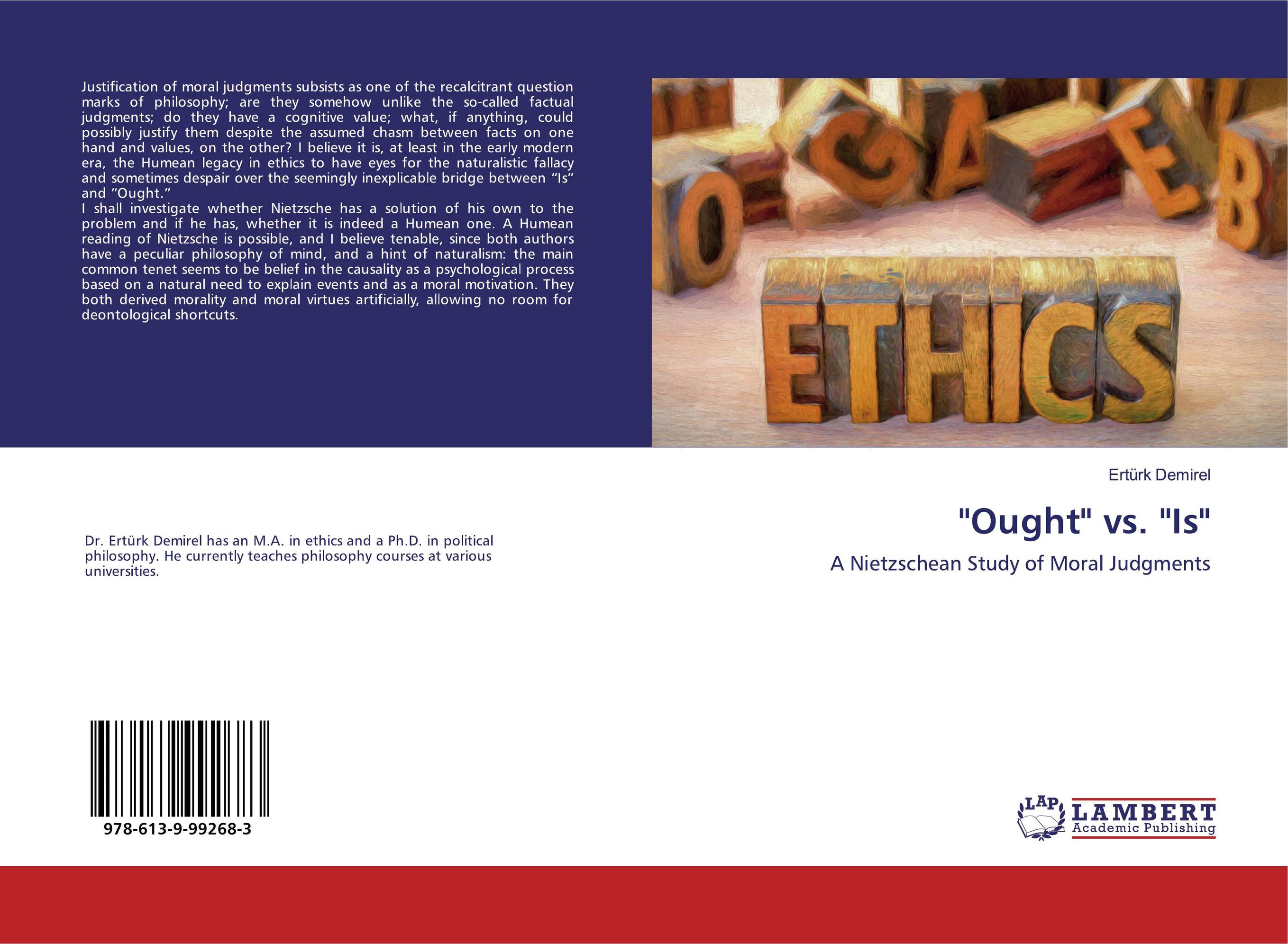| Поиск по каталогу |
|
(строгое соответствие)
|
- Профессиональная
- Научно-популярная
- Художественная
- Публицистика
- Детская
- Искусство
- Хобби, семья, дом
- Спорт
- Путеводители
- Блокноты, тетради, открытки
"Ought" vs. "Is". A Nietzschean Study of Moral Judgments

В наличии
| Местонахождение: Алматы | Состояние экземпляра: новый |

Бумажная
версия
версия
Автор: Ert?rk Demirel
ISBN: 9786139992683
Год издания: 2020
Формат книги: 60×90/16 (145×215 мм)
Количество страниц: 60
Издательство: LAP LAMBERT Academic Publishing
Цена: 23208 тг
Положить в корзину
| Способы доставки в город Алматы * комплектация (срок до отгрузки) не более 2 рабочих дней |
| Самовывоз из города Алматы (пункты самовывоза партнёра CDEK) |
| Курьерская доставка CDEK из города Москва |
| Доставка Почтой России из города Москва |
Аннотация: Justification of moral judgments subsists as one of the recalcitrant question marks of philosophy; are they somehow unlike the so-called factual judgments; do they have a cognitive value; what, if anything, could possibly justify them despite the assumed chasm between facts on one hand and values, on the other? I believe it is, at least in the early modern era, the Humean legacy in ethics to have eyes for the naturalistic fallacy and sometimes despair over the seemingly inexplicable bridge between “Is” and “Ought.”I shall investigate whether Nietzsche has a solution of his own to the problem and if he has, whether it is indeed a Humean one. A Humean reading of Nietzsche is possible, and I believe tenable, since both authors have a peculiar philosophy of mind, and a hint of naturalism: the main common tenet seems to be belief in the causality as a psychological process based on a natural need to explain events and as a moral motivation. They both derived morality and moral virtues artificially, allowing no room for deontological shortcuts.
Ключевые слова: Ethics, morality, Moral Judgments, speech acts, Nietzsche, Hume



